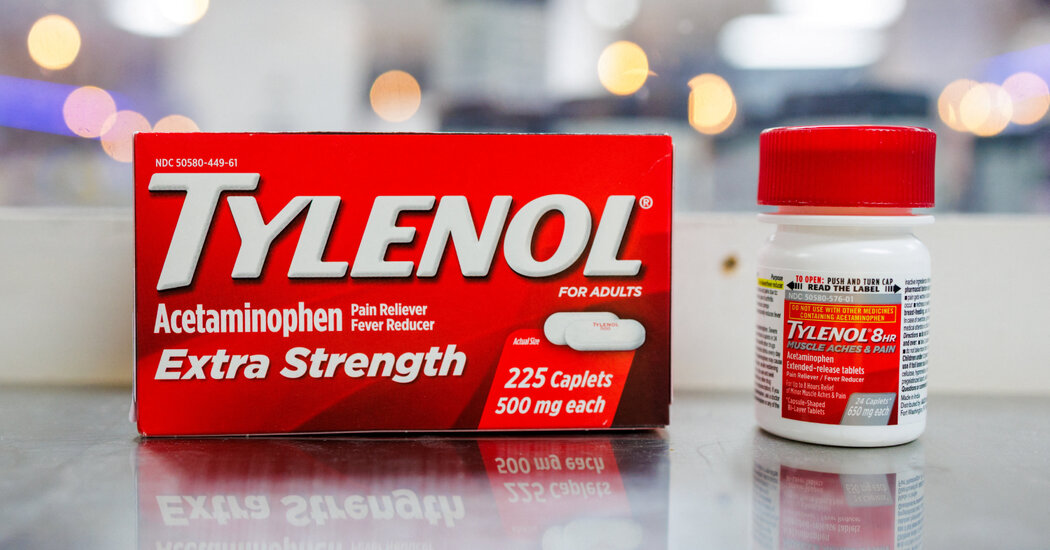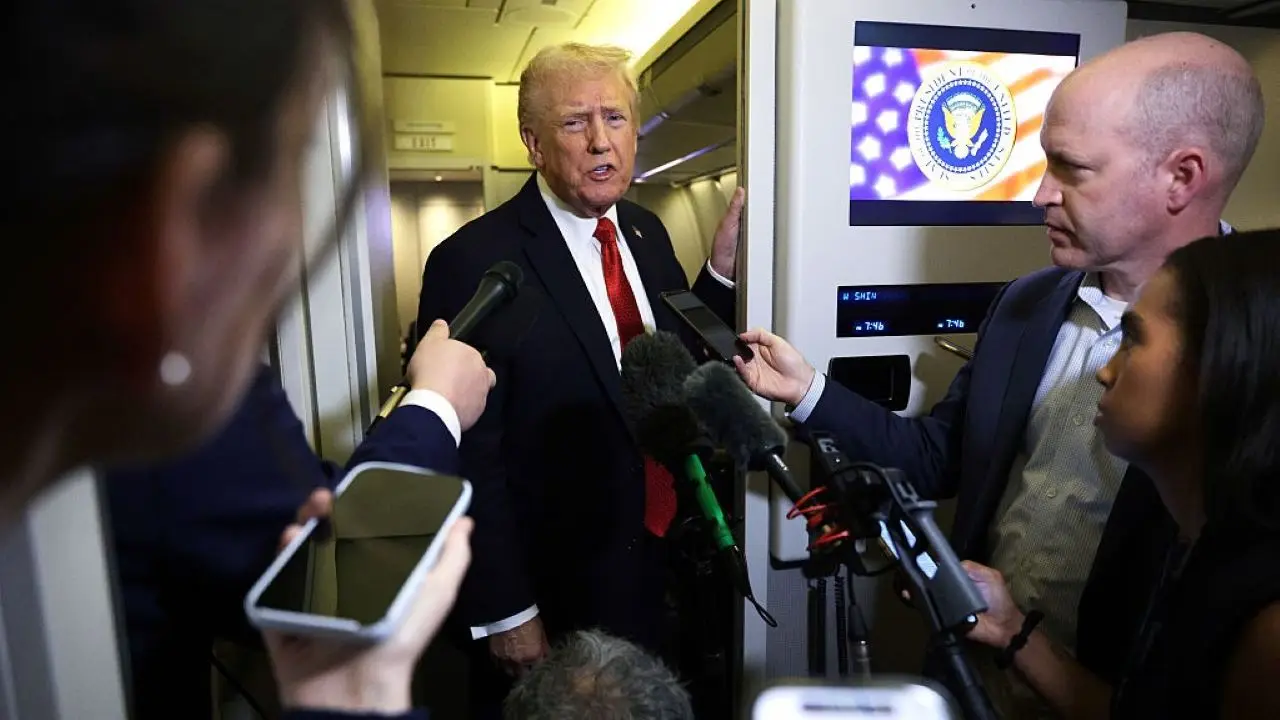Copyright The New York Times

A risky wager Kimberly-Clark’s $40 billion deal for Kenvue, the embattled maker of Tylenol and other consumer products, seemingly flies in the face of two M.&A. maxims: skirt uncertainty whenever possible, and avoid inviting scrutiny by the Trump administration. Lauren Hirsch breaks down why the consumer goods giants made their bet — and whether they can get out of it. Talks began after Kenvue announced a strategic review in July, effectively putting itself up for sale. The company was already under pressure from shareholders, including the activist investor Starboard Value, whose co-founder, Jeff Smith, joined its board in March. In September, the Trump administration linked the use of Tylenol during pregnancy to autism, a connection that the company has strongly denied. That turmoil hovered over deal talks and helped Kimberly-Clark push for an agreement that valued Kenvue at a discount to its peers. (The transaction values Kenvue at $21.01 a share, only slightly above where the company was trading before word of the administration’s plans emerged.) One big question: Did the companies give federal officials a heads-up about the deal? That tactic, which has grown popular during the second Trump administration, may have bolstered executives’ confidence. The Kenvue deal is a bet that the markets have overreacted. Kimberly-Clark has long been interested in acquiring Kenvue, given its well-known brands and overlap in customers, people with knowledge of the deal told DealBook. Company executives told analysts on Monday that they worked with legal, health and government experts to do thorough due diligence. They seemingly concluded that the cost and uncertainty of buying Kenvue were outweighed by the quality of the target company’s brands — and the price they would pay. (Among the winners of the deal were the many activist investors in Kenvue’s stock.) Many shareholders in Kimberly-Clark seem to think that the company didn’t get enough of a discount: Its shares fell down nearly 15 percent on Monday. Kimberly-Clark probably can’t cite litigation risk as an escape hatch. Regulatory filings by the company published on Monday showed that business pressures related to acetaminophen or talc, whose legal liability Kenvue has assumed from Johnson & Johnson outside the United States and Canada, don’t appear to qualify as acceptable reasons to walk away. However, there is a caveat to that carve-out in a disclosure letter by Kenvue that hasn’t been publicly filed yet. There could be other ways to kill the deal. Both Kenvue and Kimberly-Clark stockholders must vote on the transaction. But with a final deadline for closing set for the second half of 2026, shareholders most likely won’t vote for months, according to Eric Talley, a professor at Columbia Law School. “If Kenvue gets clobbered by Tylenol liability in the meantime, Kimberly-Clark stockholders are unlikely to approve the deal,” Talley told DealBook. “If Kenvue runs the table and escapes all liability risk, its own stockholders may bridle and vote the deal down.” HERE’S WHAT’S HAPPENING Dick Cheney has died. Cheney, who served as vice president under George W. Bush from 2001 to 2009, died on Monday at 84. A prominent conservative who embraced low taxes and pushed for a strong military response to the Sept. 11, 2001, attacks, he later broke ranks with the Republican Party when he endorsed Kamala Harris over Donald Trump in the 2024 election. The Trump administration reportedly blocks Nvidia’s A.I. chip exports to China. Senior officials including Secretary of State Marco Rubio pushed President Trump not to discuss with President Xi Jinping of China a request by the chipmaker to sell its most advanced chips to Beijing, according to The Wall Street Journal. But Nvidia’s stock rose 2.2 percent on Monday after Microsoft said that it had received an export license to ship the company’s most advanced chips to the United Arab Emirates. OpenAI strikes a huge deal with Amazon. The ChatGPT maker agreed to buy $38 billion worth of cloud computing capacity from the tech giant over seven years, days after it renegotiated its relationship with Microsoft partly to reach such agreements. And Alphabet issued $25 billion in corporate bonds as it spends heavily on A.I. Hawkish Fed comments spook investors. Stocks fell in Asia and Europe, as did U.S. equity futures, after two Fed policymakers cast some doubt about whether the central bank would cut rates again next month. Austan Goolsbee, the president of the Chicago Fed, said that persistent inflation meant that he was “not decided” about making another cut, while Lisa Cook, a Fed governor, said inflation and a slowing labor market meant that the central bank’s decision was still “live.” Norway’s sovereign wealth fund votes against Elon Musk’s $1 trillion pay plan. Norges Bank Investment Management, the first major investor in Tesla to disclose how it voted, said that it was worried about the size, dilution and “lack of mitigation of key person risk” posed by the compensation package, which could be worth roughly $1 trillion if certain milestones are met. The carmaker is expected to announce the vote tally on Thursday. Election Day: What’s at stake Voters head to the polls on Tuesday in New York and elsewhere in the country in a series of richly funded local races. President Trump has been a force, too. He fired off a volley of social media posts on Monday seeking to frame the races around the economy, immigration and crime, issues that helped him win the White House a year ago. He also endorsed Andrew Cuomo for New York mayor. The outcomes could offer a litmus test on how Americans feel about Trump’s continuing trade war and a federal government shutdown that seemingly has no end in sight. Here’s what (and whom) to watch: In New York City: Zohran Mamdani, the Democratic nominee and front-runner, holds a wide margin in the polls over Cuomo, the former governor, and Curtis Sliwa, the Republican candidate. If Mamdani can score a decisive victory, could that augur a nationwide shift for the party toward tax-the-rich policy ideas that have spooked the city’s business community and wealthy? And would Trump make good on his statement to cut the city off from federal funds if Mamdani wins? Here’s who else has endorsed Mamdani and Cuomo. New Jersey and Virginia are the sites of hotly contested governor races that have attracted big money from across the country. The New Jersey contest, pitting Representative Mikie Sherrill, a Democrat, against Jack Ciattarelli, a Republican, is expected to be the state’s most expensive. Political analysts say a Democratic sweep — and an especially strong showing by the party in the suburbs of Northern Virginia — would serve as a rebuke to Trump and a sign of how voters in battleground states are leaning before midterm elections next year. There’s a lot on the line for California governor, Gavin Newsom. Proposition 50, Newsom’s divisive gamble to redraw the state’s voting district maps, has national implications (for him and his party). And it has attracted more than $120 million in donations, including from the billionaires George Soros, Michael Moritz and Reed Hastings. The haul shows Newsom’s fund-raising prowess as he weighs a potential presidential bid in 2028. That said, big-name donors to Newsom’s previous campaigns, including Jeffrey Katzenberg and George Marcus, appear to be sitting this one out, according to Politico. Charles Munger Jr., the son of Charlie Munger, the longtime business partner of Warren Buffett, has emerged as the biggest backer of efforts to defeat Proposition 50. But, as a whole, the opposition has been vastly outgunned in donations. Six initial public offerings raised $100 million or more in October, down from eight in the same month last year, according to data from the research and investment firm Renaissance Capital. The S.E.C. offered companies a workaround, though, updating its guidance to allow new listing registration statements to become automatically effective 20 days after they were filed. Navan, a travel expense company, became the first to take advantage of the agency’s new guidance last week. The rule change laid the groundwork for a flurry of I.P.O. activity, with five I.P.O.s this week aiming to raise $100 million or more. Beta Technologies, an electric aerospace company, is the largest among them: It priced its initial public offering on Monday at $34 a share, above its expected range of $27 to $33. That momentum is expected to slow. The S.E.C.’s workaround is best for companies already engaged with the agency. Both Navan and Beta had received comments from the S.E.C. on their filings before the shutdown, mitigating the risk of after-the-fact S.E.C. review. “Soon the pipeline will run out of those names,” Matthew Kennedy, a strategist at Renaissance Capital, told DealBook. “A slowdown is inevitable.” There are other risks, too. The 20-day waiting period “is like an eternity” for companies navigating tumultuous markets, Alexander Platt, a securities law professor at the University of Kansas, told DealBook. And investors may be wary of backing companies that did not receive final approval from the agency. There were signs that was the case for Navan, which was trading at $17 per share at the market’s close on Monday, 32 percent below its initial offering of $25. As the government shutdown enters Day 35, that concern is likely only to further chill companies eyeing a public offering. THE SPEED READ Deals Starbucks agreed to sell up to 60 percent of its China retail operations to the private equity firm Boyu Capital for $4 billion. The coffee giant said it expected the value of that business to exceed $13 billion. (NYT) Millennium Management sold a roughly 15 percent stake to investors at a $14 billion valuation. (FT) Politics, policy and regulation Senator Richard Blumenthal, Democrat of Connecticut, pressed donors to President Trump’s new ballroom on why they wanted to remain anonymous. (NYT) A Trump administration order to keep a Michigan coal plant open is pitting residents against those supporting efforts to use it to attract a data center. (WSJ) “This Trillionaire Economy Thrived in a Global Order Trump Is Ditching” (NYT) Best of the rest “Sex Dolls, Boycotts, Protests: Furor in France as Shein Opens Paris Store” (WSJ) The Texas billionaire oilman who spent millions to bolster Texas Tech’s football program now worries that people like him are ruining college sports. (NYT) We’d like your feedback! Please email thoughts and suggestions to dealbook@nytimes.com.



